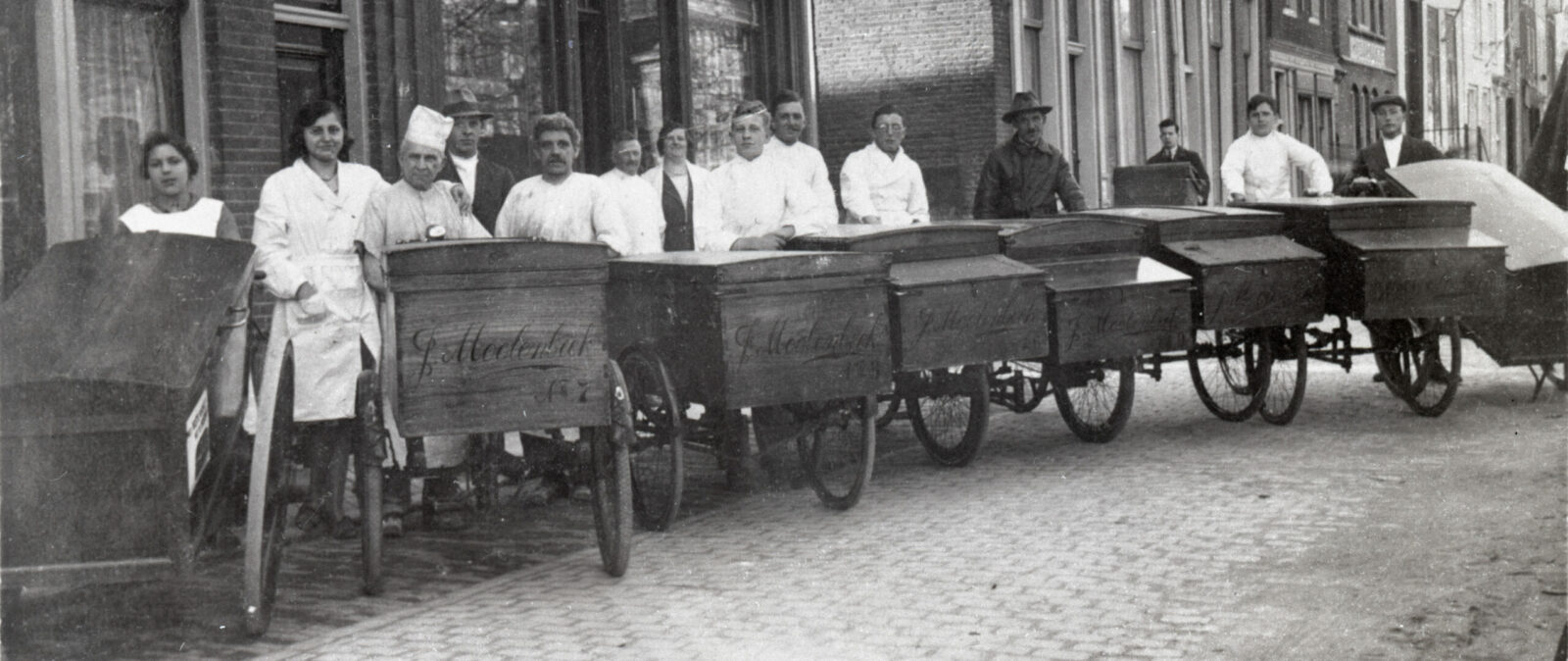Agenda
Agrarian Capitalism in the Preindustrial Low Countries : Local, Regional, and Global Dimensions
Posthumus students Bram Hilkens (PhD candidate at Erasmus University Rotterdam) and Sam Miske (PhD candidate at Vrije Universiteit Amsterdam), with support by the Posthumus Institute research network ‘Economy and Society of the Pre-Industrial Low Countries in Comparative Perspective’, the NWO-funded VIDI projects ‘Positively Shocking! The Redistributive Impact of Mass Mortality through Epidemic Diseases and Violent Conflict in Early Modern Northwest Europe’ and ‘Land Grabbing and Dutch Empire (16-18th century)’, and the International Institute for Social History (IISH), are organising the workshop ‘Agrarian Capitalism in the Preindustrial Low Countries : Local, Regional, and Global Dimensions’ at the International Institute of Social History in June 2023. For this workshop, papers on agrarian capitalism in the preindustrial Low Countries and related areas, such as border regions and colonies under the Dutch Empire, are welcomed. The organisers are hoping to receive contributions from researchers at various points in their respective careers and especially encourage the application of early career researchers such as PhD candidates and postdocs.
About the workshop
In scholarship concerning the transition from feudalism to capitalism, the concept of agrarian capitalism has played a crucial role as it marks the dominance of market mechanisms over other forms of exchange of land, labour, and capital in the countryside. The medieval and early modern Low Countries form a particularly interesting case in this scholarship, as both the Southern Low Countries and the Dutch Republic have been associated with early forms of agrarian capitalism. These transitions, however, have mostly been discussed in isolation from not only one another, but also from broader social developments such as the overseas expansion of the Dutch Republic, the flourishing of textile industries in the Southern Low Countries, or war-driven migration, to name a few.
New research projects are attempting to approach the agrarian capitalism framework from a different angle, stressing its many interrelated links with environment, inequality, the rise of the world market, and gender relations. This workshop attempts to consider new approaches to and uses for the agrarian capitalism framework for the Low Countries. Under what circumstances do we speak of agrarian capitalism? How do we distinguish it from ‘urban’ or ‘regular’ capitalism? What kind of variables indicate its emergence or dominance? Where do we place it chronologically? Do we speak of an internal institutional transition in the countryside, or is it impossible to see it apart from broader, global socioeconomic developments? How did these processes relate to (changes in) the gendered division of labour and economic autonomy of women? By addressing such questions, we aim to test the relevance of the agrarian capitalism framework for the case of the preindustrial Low Countries and vice versa.
Program
| 10:00-10:15 | Welcome and coffee |
| 10:15-10:20 | Introduction by organizers |
| 10:20-10:30 | Bram Hilkens (Erasmus University Rotterdam) – Introduction to Agrarian Capitalism: Traditional and Present-Day Perspectives |
| 10:30-11:00 | Piet van Cruyningen (Wageningen UR) – Agrarian Capitalism in the North Sea Lowland in the Early Modern Period [abstract (pdf)] |
| 11:00-11:15 | Coffee break |
| 11:15-11:45 | Arnoud Jensen (University of Antwerp) – Leasing at the Cost of Nature? Short-Term Leasehold Between Agrarian Capitalism and Environmental Stewardship in the Late Medieval Low Countries [abstract (pdf)] |
| 11:45-12:15 | Jim van der Meulen (Ghent University) – Rewilding as Opportunity: Seigneurial Monopolization of Wildlife Under Early Agrarian Capitalism (Guelders and Flanders, 15th-16th Centuries) [abstract (pdf)] |
| 12:15-13:15 | Lunch |
| 13:15-13:45 | Reinder Klinkhamer (University of Groningen) – The Limits of Agrarian Capitalism in Guelders (c. 1450-1550) [abstract (pdf)] |
| 13:45-14:15 | Harm Zwarts (University of Groningen) – Financial Markets and Agrarian Communities: An Analysis of Investment Portfolios of Reformed Deaconries in the Countryside Of The Dutch Republic, c. 1750-1800 |
| 14:15-14:45 | Sam Miske (VU Amsterdam) – Between Mercantile and Agrarian Capitalism: The Dutch Colonisation of the Banda Islands, Early 17th Century [abstract (pdf)] |
| 14:45-15:00 | Coffee break |
| 15:00-15:40 | Round table discussion: Pepijn Brandon (VU Amsterdam), Daniel Curtis (Erasmus University Rotterdam), Petra van Dam (VU Amsterdam), Maïka De Keyzer (KU Leuven) |
| 15:40-16:30 | Open discussion |
| 16:30-16:45 | Closing words |
| 16:45-18:00 | Drinks |


